The Beginning
I was watching a play about a Chinese immigrant. This was my first trip to the theatre since the great you-know-what. I sat in the audience, savoring the feeling of the glossy program between my fingers. The play was great. I’d forgotten how fun the genre can be, how nice it felt to see real people onstage. And then, The Moment happened: one of the main characters held up a piece of paper, and her interlocutor asked what she was writing. Wait, my brain said, Isn’t it obvious? She had written down her last name in Chinese for the entire theatre to see.
Wait, my brain said again. And I looked around and realized that even though the play was about a Chinese immigrant—and even though I was in San Francisco, a city with one of the largest populations of Chinese-speaking immigrants—the play did not expect its audience to be able to read Chinese.
After leaving the theatre, I tortured myself by turning The Moment over and over in my head. Was narcissism to blame for my surprise at the play’s assumption? Was I disloyal to the Asian American theatre community by being unnecessarily nitpicky? Or did The Moment feel so jarring because it illuminated my own insecurities as someone whose experience has been equal parts “Asian Asian” and “Asian American?”
My family still lives in Taipei, Taiwan, where I consider home. Mandarin is my first language, and I had the privilege of belonging to the majority growing up. My Saturdays were spent at cram schools and not in language classes. My struggle with belonging began later when I moved to the United States for college. While I’m not a foreigner, I also don’t share in many of the “typical” Asian American experiences.
Identities are unwieldy and never clear-cut. To write about them is to wade into the weeds: What defines Asian American? Is there such a thing as the typical Asian American experience? What about the immigrant experience? My recent visit to the theatre reminded me of the term third-culture kids (TCK), coined in the 1950s by sociologist Ruth Hill Useem to describe children who are raised in a culture other than their parents’ or passport countries’. For the purpose of this essay, I use the term “third-culture theatremakers” to describe other people like me who may not have grown up in the States but now make theatre here. To make sense of my own identity and confusion in the theatre space, I connected with three third-culture theatremakers from the Chinese-speaking community. Of course, not all of them agree with the terminology.
My struggle with belonging began later when I moved to the United States for college. While I’m not a foreigner, I also don’t share in many of the “typical” Asian American experiences.
The Playwright
The first question posed to me by playwright Yilong Liu was, “Who are the labels for?” I laughed nervously, panicked that the table had already turned between the interviewer and subject. I was at my home office in San Francisco, and Yilong was speaking to me from his apartment in Brooklyn. Fortunately for me, Yilong has thought about the topic before and directed me to an interview he did with American Theatre Magazine in 2021. “I always feel like I’m living in that liminal space between generations, between countries, and between cultures,” he says to writer and theatre scholar Linnea Valdivia at the time.
Raised in Chongqing, China, Yilong studied literature in Beijing and playwriting at the University of Hawaii. After moving to New York to be part of the theatre community, he has garnered many prestigious fellowships and awards, including a Lambda Literary Award for The Book of Mountains and Seas. He identifies as an immigrant artist and compares his experience in the States to that of a first-generation immigrant. “We have roots everywhere, across culture, across locations, and across time,” he says. “We may not fit into the audience and critics’ pre-existing frame.”
While he struggled with writing from “the in-between space” in the beginning of his career, Liu said the pandemic has changed his perspective and emboldened him. He believes that the role of a writer is to be brave enough to be misunderstood. “I used to feel like a boat lost at sea,” he says. “But now, I realize that I’m a lighthouse. Other boats have their own lighthouses. I just need to light the way for my own vessels.”
The Director
Buoyed by Yilong’s optimism, I next connected with Chongren Fan, a stage director currently based in New York. Chongren grew up in Shanghai and attended Shanghai International Studies University, where he fell in love with musical theatre. As he struggled with his sexuality, Chongren found a sense of belonging in the theatre, where he could be present and happy. Motivated by a desire to learn more about musical theatre, he applied to MFA programs in the United States and was accepted by Sarah Lawrence College.
“I had very little understanding of Asian and Asian American theatre and identity [at the time],” he says to me over Google Meet. “Growing up in Shanghai, race never played into my upbringing.” After moving to and living in the United States, Chongren has gained a newfound understanding of how race and skin color affect one’s daily existence. His identity crisis—between his privilege as the racial majority at home and marginalization in the States—has become more pronounced the longer he’s been here.
In his work as a director, Chongren has learned to take himself out of the story and serve the plays he’s working on. Still, he is often frustrated by the focus on the “white lens” when it comes to plays about Asians and Asian Americans. “Because everything somehow has to be in response to white culture, it’s easy to generalize Asians and the Chinese experience,” says Chongren. “We have a lot of different experiences. There are people who were born here, people who moved here and only live within the Chinese community, people who moved here and live in the mainstream communities. There are so many different experiences.”
As artistic director of Yangtze Repertory Theatre in New York, Chongren wants to focus on stories centered around the Asian American and Pacific Islander (AAPI) community here in America, rather than interpretations of a mythological China. “There are so many different ways you can look at Asian American theatre,” he says. “What kind of stories aren’t being told? Whose voices aren’t being heard? I want to do things for the community that’s here.”
I started writing this and connecting with my subjects because I wanted to feel less isolated in my dilemma: Am I Asian or Asian American? And where do I fit in in Asian American theatre?
The Dramaturg
Since I already spoke with a playwright and director, I wanted to interview someone who is a theatre practitioner with an academic background. My mind immediately went to Bindi Kang, a dramaturg I worked with during Yangtze Rep’s 2021 production of Clubhouse, a series of short plays adapted from Strange Tales from a Chinese Studio by Qing dynasty writer Pu Songling. Bindi obtained her undergraduate degree in China and then moved to the States for graduate school, first at SUNY Binghamton and then at Columbia University. She is warm and full of conviction in her response to my questions, and her confidence is infectious.
In her career as a dramaturg, Bindi often struggles with the burden of having to speak for an entire group. While she does feel that she can connect on a deeper level with Asian American subjects, she believes that the commercialized theatre model and the need to market plays to attract audience members encourage more simplified stories about Asian and Asian Americans to be put on stage. In an industry that values niches, her race and background can often pigeonhole her work as a dramaturg. Though she trained as a theatre scholar, Bindi rarely gets the opportunity to work on plays written by the likes of Edward Albee or Tennessee Williams, but what keeps her going as both a dramaturg and a PhD student is knowing her worth. “I have my education. I have the substance,” she says. “I know my shit.”
Bindi calls herself a Chinese in America and uses the moniker Asian/American, a term scholar Dylan Rodríguez defines as applying to, “people who identify as ‘Asian American’ as well as those who are racialized as ‘Asian’ and reside in the [United States], but do not identify as ‘American’ and often navigate migrant, undocumented, non-citizen, refugee, and/or criminalized positions.” When asked if she thinks she will identify as Asian American at any point during her time in the States, Bindi replies with an easy laugh: “Ask me again in thirty years.”
The End
I started writing this and connecting with my subjects because I wanted to feel less isolated in my dilemma: Am I Asian or Asian American? And where do I fit in in Asian American theatre? There is no clear-cut answer, of course, and I have no suggestions for how American theatre can be more inclusive of “third-culture” theatremakers other than simply considering that we exist. I long for plays that include more global and nuanced portrayals of Asian/Americans, like what the film industry has been doing with Crazy Rich Asians and Everything Everywhere All at Once. In fact, the way Yilong described his plays—across culture, across locations, and across time—reminded me of the latter movie, which stars Michelle Yeoh as Evelyn Wang, a Chinese American mother who is tasked with saving the world by channeling her different selves across universes.
In the climax of the movie, Evelyn has to confront her daughter, with whom she’s had a contentious relationship. Standing in the parking lot of an IRS building, covered in debris, Evelyn says that no matter how many universes are out there, no matter how many different lives she could have led, she still chooses to be right here with her daughter. Evelyn’s conviction in this scene reminds me of something Yilong, Chongren, Bindi, and I all share: no matter how our identities change and no matter how others view us, we’re all contributing to American theatre in our own way. That should be enough.

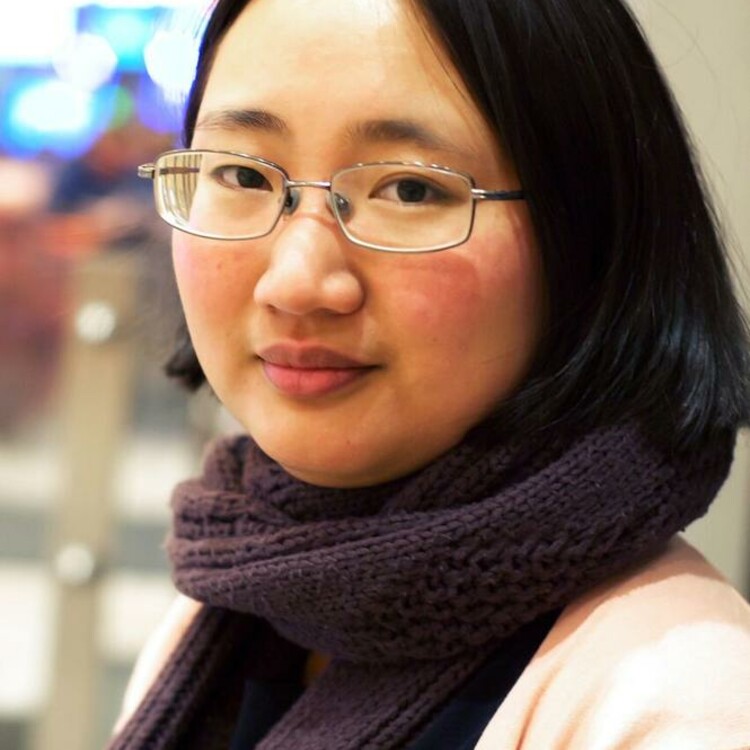
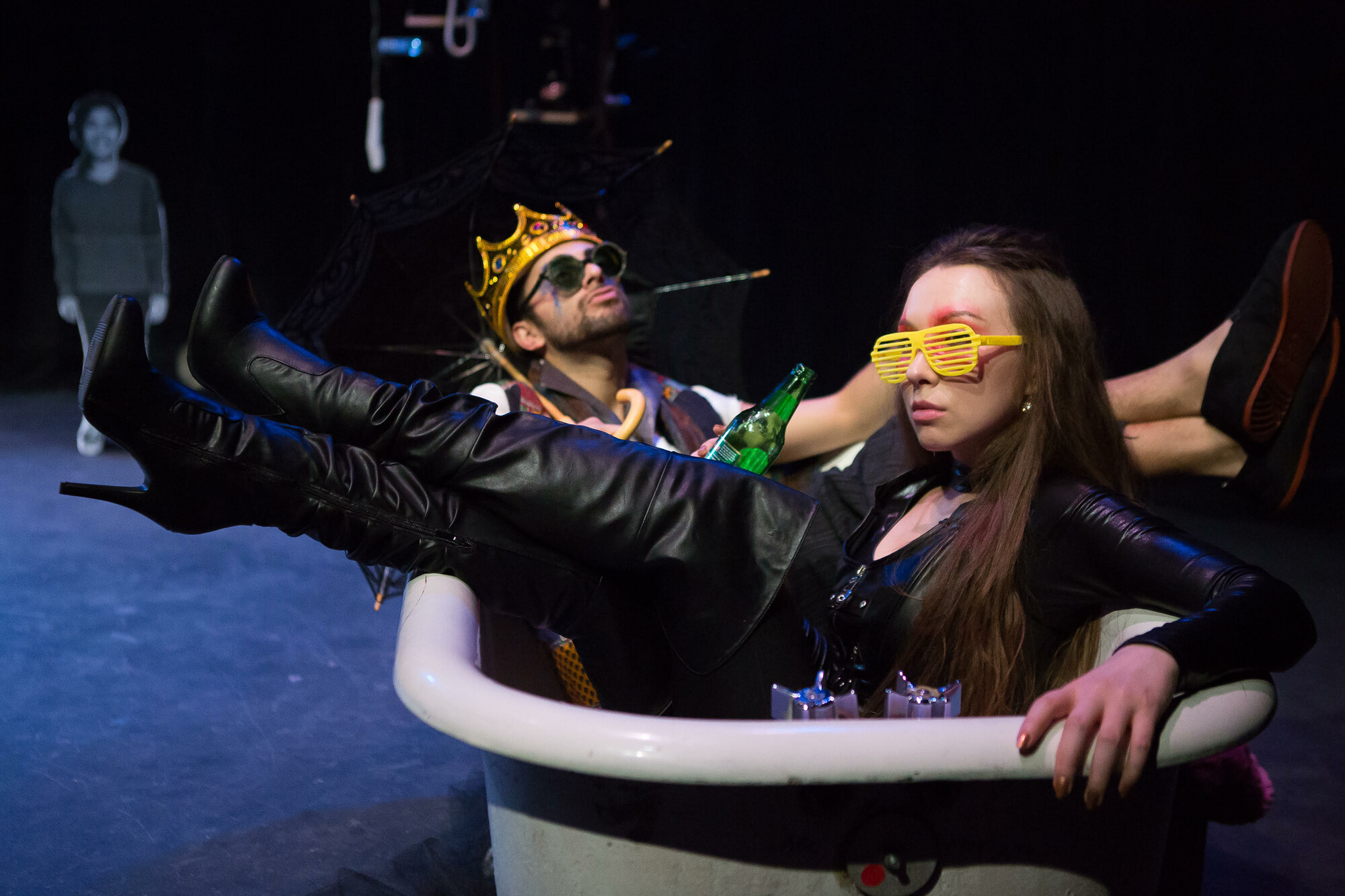
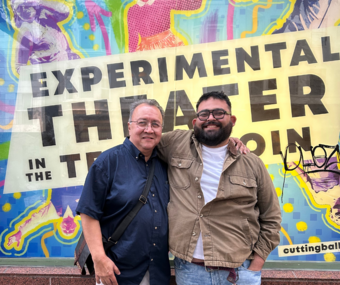


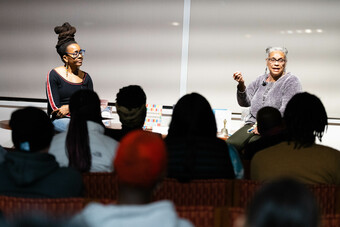


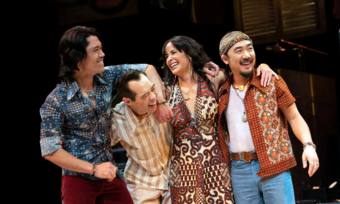

Comments
The article is just the start of the conversation—we want to know what you think about this subject, too! HowlRound is a space for knowledge-sharing, and we welcome spirited, thoughtful, and on-topic dialogue. Find our full comments policy here
I've read this essay at least 3 times. It's just a pleasure to read as a TCK theatre-maker of partially Chinese descent.
I especially loved: "After leaving the theatre, I tortured myself by turning The Moment over and over in my head. Was narcissism to blame for my surprise at the play’s assumption? Was I disloyal to the Asian American theatre community by being unnecessarily nitpicky? Or did The Moment feel so jarring because it illuminated my own insecurities as someone whose experience has been equal parts “Asian Asian” and “Asian American?”
and
“We have roots everywhere, across culture, across locations, and across time,” he says. “We may not fit into the audience and critics’ pre-existing frame.” ...He believes that the role of a writer is to be brave enough to be misunderstood. “I used to feel like a boat lost at sea,” he says. “But now, I realize that I’m a lighthouse. Other boats have their own lighthouses. I just need to light the way for my own vessels.”
Thank you, Livian, for writing it and thank you, Howlround, for publishing it.
I think this is true of a lot of plays about marginalized communities; they've been subject to a lot of "white-turgy", where it's assumed the baseline audience is white (and upper middle class on up) and everything is oriented around that. It's most apparent in large, regional theatres, which isn't surprising; that's where the money is, and no playwright will ignore where the money and resources are.
I'm kinda cognizant in my own work, though probably not as systematic as I should be. It's a hard assumption to scrub out of my training (and particularly since I'm second+ generation). But I'm surely more aware of this than other workers in the field, so...
I think white-turgy might be my new favorite word :)